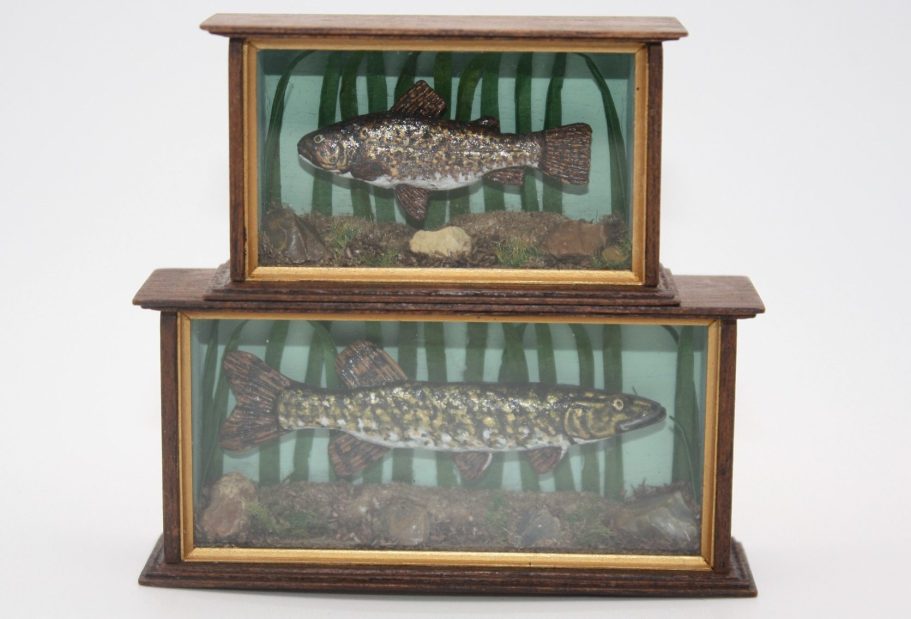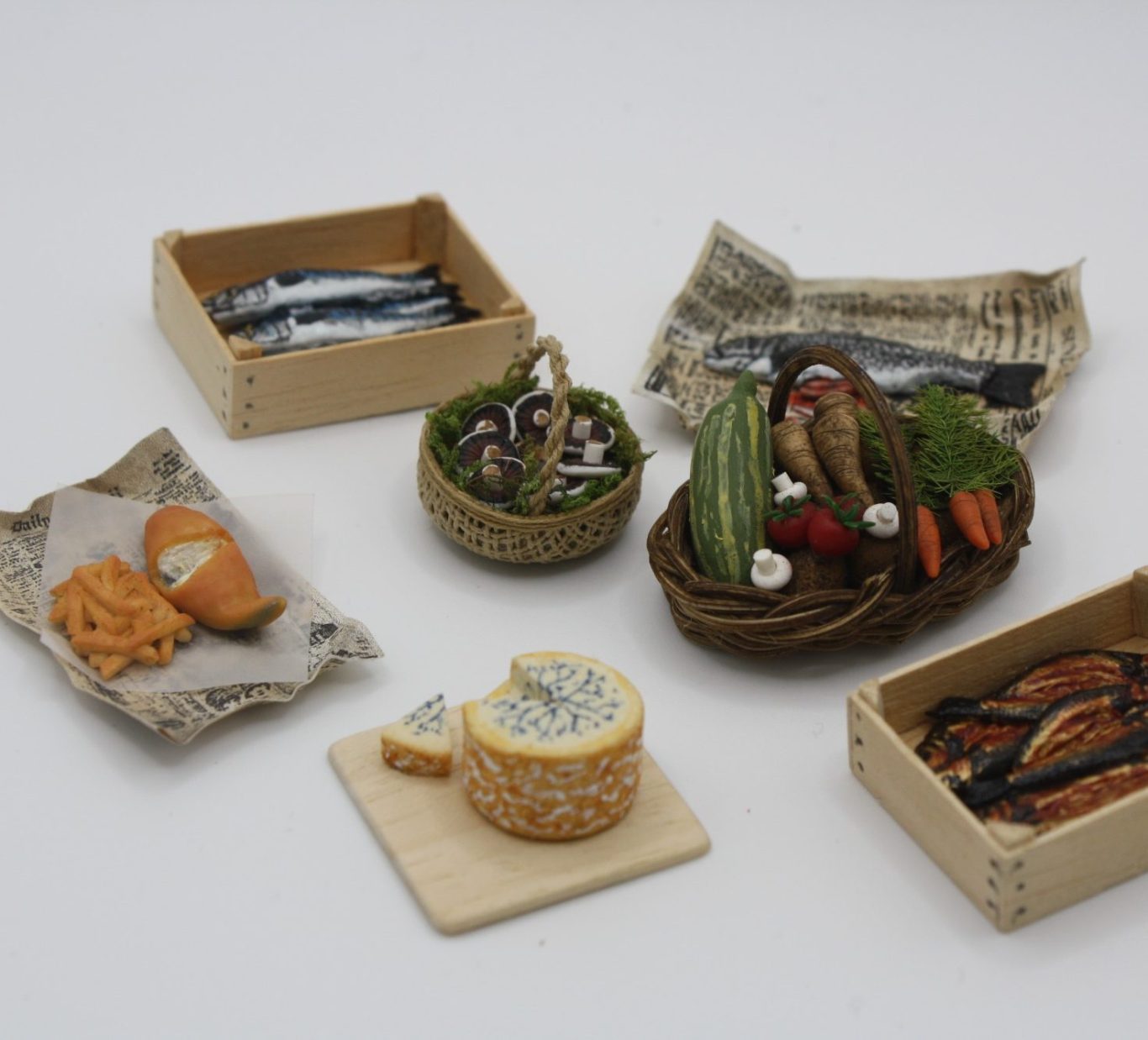Charlotte and Martin have been hand crafting miniatures for over 30 years. Despite the strain on their bodies, they fear if they stop altogether, they will slip into decline.
Charlotte says:
It started with collecting; buying things that we saw that were simply amazing. You don’t see craftsmanship like it anymore. We started making as a hobby after Martin left teaching because of the stress. We soon worked out what each of us liked doing and were good at. We just learnt by experimenting and problem-solving; just seeing what worked and what didn’t’. It soon evolved into a business. I think we were one of the last businesses to handmake such a large range of things, and that’s maybe why we were so popular. It has kept our minds agile and alert and working into our retirement age. But now, it's getting to be too much for us, and we will be retiring from this too. It is hard work physically - 12 hours a day, 7 days a week with no days off, just to keep up with demand. We are both getting older and our joints are seizing up. We need really good lights because our eyes are getting weaker. Saying that, it is completely addictive, and we won’t stop making as a hobby or running our miniatures clubs. We can’t ever stop altogether, otherwise I think we would just slip into physical and mental decline.
Martin says:
We have been making miniatures for 30 years and we will continue till our hands pack in. I went to art college in the 1960’s and was taught by people like David Hockney. He really taught me how to see and how to simplify, which is key to miniatures. There is a connection between eye and hand with no hesitation. That helps when you are making things, as you have the vision up there and then it sort of comes out in your hands immediately. I always start doing things the most complicated way with no short-cuts. I never make casts of moulds for example; I hand make everything from scratch. To make a cauliflower, for example, I would make the round centre on a stick, fire it; then make each individual floret and fire it again; then paint it in layers. I do it the long way round because it looks so much better, and I wouldn’t use machinery because I like making things with my hands. I get enjoyment from the processes, even if they are slow and take a lot of effort – that’s when you feel the reward.


We need your consent to load the translations
We use a third-party service to translate the website content that may collect data about your activity. Please review the details in the privacy policy and accept the service to view the translations.